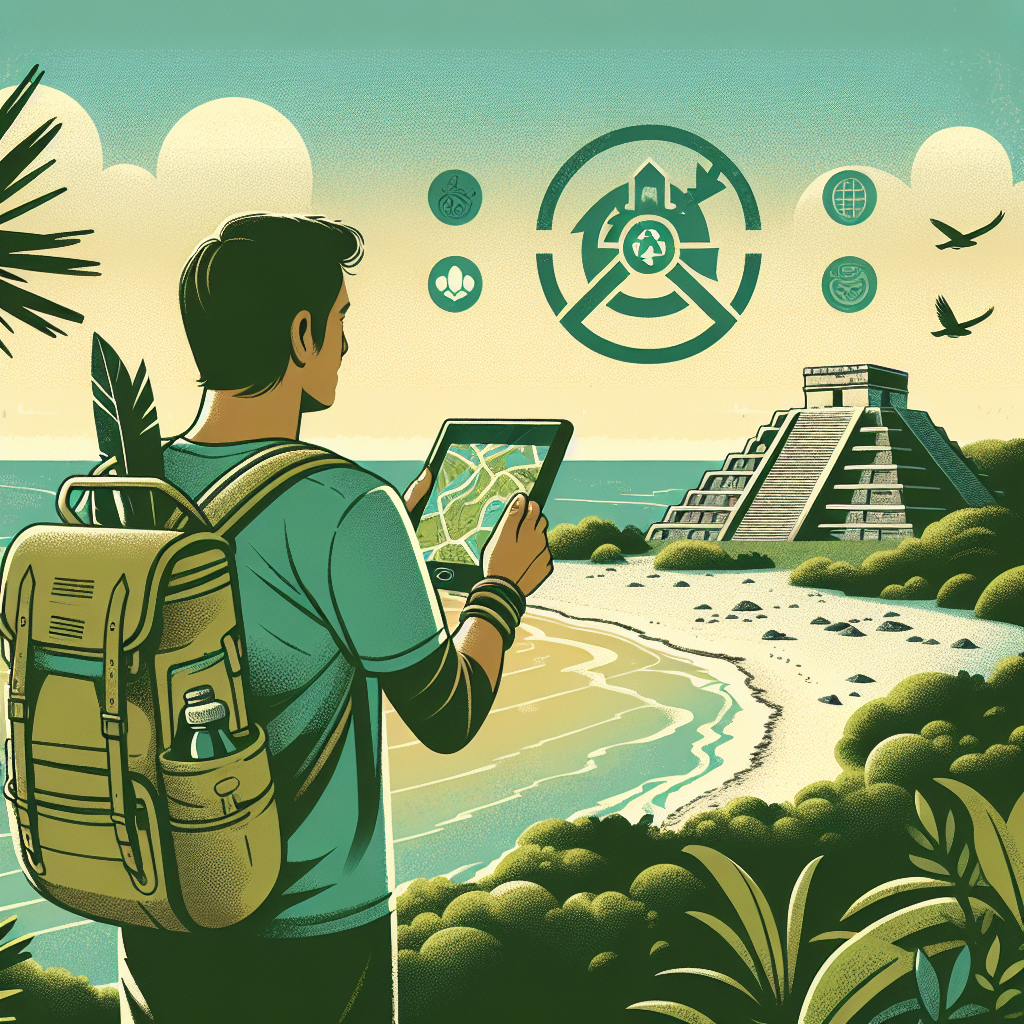1. Understand Tulum’s Ecosystem
Before traveling to Tulum, it is crucial to familiarize yourself with the local ecosystem. Tulum is home to stunning beaches, lush jungles, and the unique cenotes (natural sinkholes) that dot the region. Understanding this delicate environment is essential for responsibly enjoying what it has to offer. The Yucatán Peninsula is particularly vulnerable to pollution and climate change, making it vital to minimize your environmental footprint during your visit.
2. Choose Eco-Friendly Accommodation
Selecting the right place to stay is one of the best ways to support Tulum’s eco-conscious initiatives. Numerous eco-friendly hotels and resorts prioritize sustainability, utilizing solar panels, water-saving fixtures, and locally sourced materials. Look for accommodations with sustainable certifications, such as EarthCheck or Green Globe. Notable options include Cabanas La Luna, which implements eco-friendly practices, and Posada Margherita, known for its preservation efforts.
3. Support Local Businesses
Dive into the local economy by choosing to eat at family-owned restaurants and shop at local artisan markets. These businesses prioritize sustainability and often source their ingredients locally, reducing carbon footprints associated with transportation. Enjoy traditional Yucatecan cuisine at places like El Camello Jr. or La Nave, where you’ll find fresh seafood and locally grown veggies. Purchasing handmade crafts from artisans in Tulum supports local communities and helps preserve cultural heritage.
4. Use Eco-Conscious Transportation
When exploring Tulum, opt for eco-friendly transportation options. Biking is a popular way to get around town while maintaining a low carbon footprint. Many hotels offer bicycle rentals, and dedicated bike paths make it safe and enjoyable. For longer distances, choose electric scooters or use shared transportation services to limit the number of cars on the roads. Consider walking to nearby attractions, which allows for a slower, immersive experience.
5. Respect Wildlife and Nature
Tulum’s diverse flora and fauna include several protected species. While hiking through the jungle, carefully observe wildlife without disturbing their habitat. Avoid feeding animals, as this alters their natural behavior and can have adverse effects on their health. Never collect plants or take shells from the beach—these practices contribute to habitat degradation.
6. Prioritize Water Conservation
Freshwater is a scarce resource in Tulum, making water conservation a priority for all visitors. Use water sparingly while showering and try to limit water usage while brushing teeth. Most accommodations offer easy access to filtered water; pack a reusable water bottle to reduce plastic waste. Moreover, avoid purchasing bottled water to cut down on plastic consumption. Many local shops provide refill stations for reusable bottles.
7. Participate in Beach Cleanups
Engaging in beach cleanups is a fantastic way to give back to the Tulum community while enjoying the ocean. Look for organized cleanup events through local NGOs or volunteer opportunities during your stay. Participating not only helps the environment but also connects you with fellow eco-conscious travelers who share similar values.
8. Choose Responsible Tours and Activities
Opt for eco-friendly tours that respect the local environment and culture. Avoid any tour companies that promote harmful practices, such as wildlife shows or unethical animal interactions. Stick to reputable operators that prioritize sustainability. Consider eco-tours in the Sian Ka’an Biosphere Reserve, which offers a unique chance to explore mangroves, lagoons, and wildlife habitats without compromising the ecosystem.
9. Respect Local Communities
As an eco-conscious traveler, understanding the importance of cultural sensitivity is vital. Always approach local communities with respect, and be mindful of photography etiquette—ask permission before taking photos of people or their property. Participate in cultural experiences that empower local communities, such as cooking classes or traditional crafting workshops while ensuring your actions uphold cultural integrity.
10. Minimize Plastic Usage
Plastic pollution is a significant concern for Tulum. To contribute to reducing waste, make a conscious effort to avoid single-use plastics. Bring reusable bags for shopping, utensils, and straws to limit the use of disposable items. Many restaurants and cafes support sustainable practices, so inquire about options to avoid plastic packaging.
11. Follow Leave No Trace Principles
The Leave No Trace principles advocate for minimizing human impact on the environment. When hiking or visiting natural sites, remain on marked paths to avoid damaging native plants. Carry out any trash you generate, whether it’s food wrappers or tissues. Leaving the area cleaner than you found it is a simple yet impactful way to support Tulum’s pristine environment.
12. Engage in Eco-Learning
Enhance your trip by learning about the local environment and conservation efforts. Participate in workshops that teach about the significance of coral reefs and how to protect them. Join local initiatives that raise awareness about environmental sustainability. Empowering yourself with knowledge not only enriches your experience but also equips you to share important insights with others.
13. Avoid Sun Block Pollution
Chemical sunscreens can harm marine life, particularly coral reefs. Opt for reef-safe sunscreens that contain natural ingredients like zinc oxide or titanium dioxide, which are safer for aquatic ecosystems. Apply sunscreen at least 30 minutes before entering the water to allow time for absorption, minimizing the amount that washes off into the ocean.
14. Be Mindful of Noise Pollution
Respect the tranquility of Tulum’s natural surroundings by keeping noise levels down. Loud music and boisterous gatherings can disrupt wildlife and other visitors’ experiences. If you choose to enjoy music, use headphones rather than portable speakers, especially on the beaches or in nature reserves.
15. Prepare for Climate Resilience
Tulum is experiencing the effects of climate change, including rising temperatures and severe weather patterns. Be mindful of your activities by considering the season and potential weather impacts. Plan for sustainable and resilient travel by checking weather conditions and being prepared for sudden changes.
16. Share Your Experience
Join the conversation in the eco-tourism space by sharing your experiences and insights from Tulum. Use social media platforms to promote local businesses and sustainable practices you observed. This not only supports the local economy but encourages other travelers to engage in responsible behaviors.
17. Embrace Mindfulness in Travel
Traveling responsibly includes being present and mindful throughout your adventure. Take time to disconnect from technology and immerse yourself in Tulum’s beauty. Incorporate mindfulness practices, such as yoga and meditation, which can deepen your connection to the natural surroundings and promote a sustainable mindset.
18. Stay Informed on Local Regulations
Before engaging in activities, it is advantageous to stay informed of any local regulations regarding environmental protection and conservation. These laws are often in place to protect sensitive ecosystems and ensure sustainable development. Understanding and adhering to these regulations is a fundamental aspect of responsible travel.
19. Leave Feedback
Lastly, consider leaving constructive feedback for businesses regarding their sustainability practices. Encourage them to adopt eco-friendly measures by highlighting the importance of environmental responsibility. Your input can make a significant difference, influencing the way businesses operate in Tulum.
Traveling responsibly to Tulum allows for a more enriching and impactful journey, enabling you to enjoy the region’s beauty while contributing positively to its preservation. By following these eco-conscious tips, every traveler can support Tulum’s sustainability efforts and ensure that this beautiful destination can be appreciated for generations to come.







